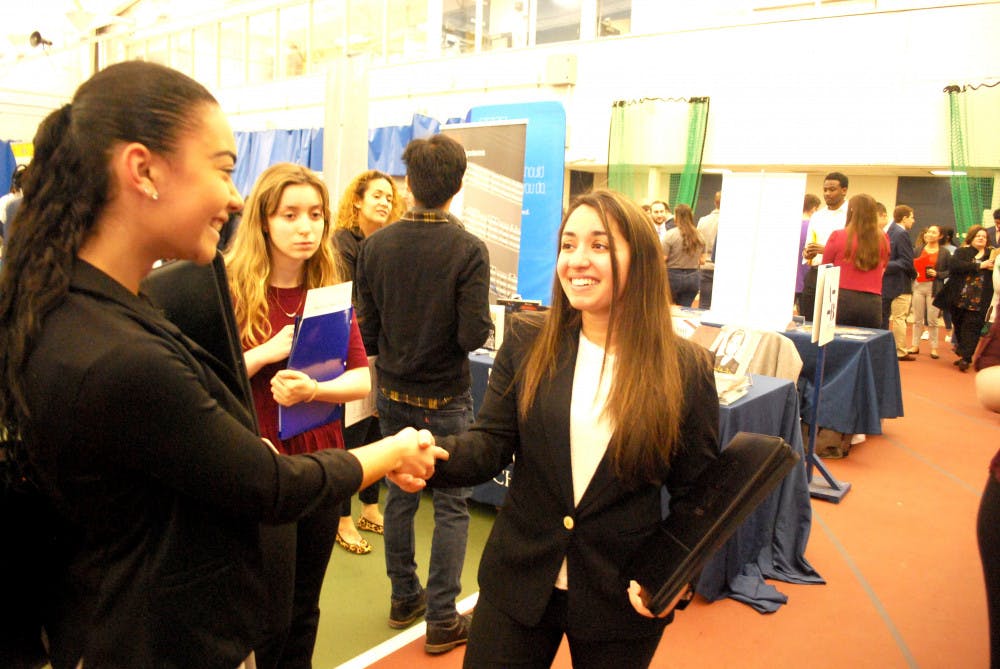By Nancy Bowne
Staff Writer
When it comes to 8 a.m. classes, attire is the last thing on college students’ minds, let alone laundry and ironing. But one day, those 8 a.m. classes will become 8 a.m. client meetings and presentations that bring home money to put food on the table.
As undergraduates make their way through college, there are more opportunities to attend job fairs, interviews and networking events. What they wear can truly make a first impression.

The College hosts a job fair once a semester, inviting vendors from the police force to accounting firms to nonprofits alike. But what does a college student wear to these events? In addition to preparing a resume, crafting a pitch and creating career goals, dressing to impress is just as important.
“When I hear professional business wear, I think nice pants, a jacket, an ironed shirt and no silly printed tie,” said John Montagna, a senior economics major. “An interview also gets you a perception of the place and how they view dress code.”
While there are several terms thrown around pertaining to proper dress etiquette, casual business wear and professional business wear are the leading types of outfits that students refer to. Some professional offices may now accept a more casual dress code, allowing employees to wear a t-shirt and jeans, but expectations vary greatly based on the type of workplace and boss.
At a previous internship, Montagna was able to pull off a polo and sneakers during the work week, but this casual style is unlikely to suit every internship.
Sophomore computer engineering major Michael Ralea said that students can always get away with khakis and no tie, taking on the business casual look. Ralea even researches beforehand to “interpret business casual and professional business correctly.”
“Professional business wear has become more adaptable and has responded to larger trends,” said Shannon Conkley, the newly-appointed director of the career center at the College.
She spoke about how some retail businesses, such as Urban Outfitters and Abercrombie & Fitch, want to see more creative, casual clothing expressions other than the “blue, black, gray fields.”
“It comes down to knowing your target,” she said.
Researching a company’s dress policy is key to understanding how to prepare. But regardless of the job position, most agree that an interview calls for formal attire.
“At SpringPoint Senior Living Center, employees have uniforms provided by the company,” said Iris Weiss, a recruitment coordinator at SpringPoint. “But we still expect a level of professionalism. Especially for employees working in administration, it is important to be presentable.”
Presentation is everything, especially when undergraduates become more immersed in professional businesses. In lieu of the rising popularity of tattoos and piercings, the workplace faces some new conflicts within dress code appearance and professionalism as young employees are hired.
“Employers are now bending towards applicants,” said Michael McDyer, the marketing director at RRBB Accounting Firm. “Although, you should match the level of dress of your client or exceed it.”
While many students at the College seem to be on the right page with dress code attire, it’s important to recognize the resources available on campus to aid in the process of job search and professional development.
“TCNJ career center wants to hear insight about what students want, including access to professional business wear,” Conklin said. “Not every student has the same background and access to professional dress.”







